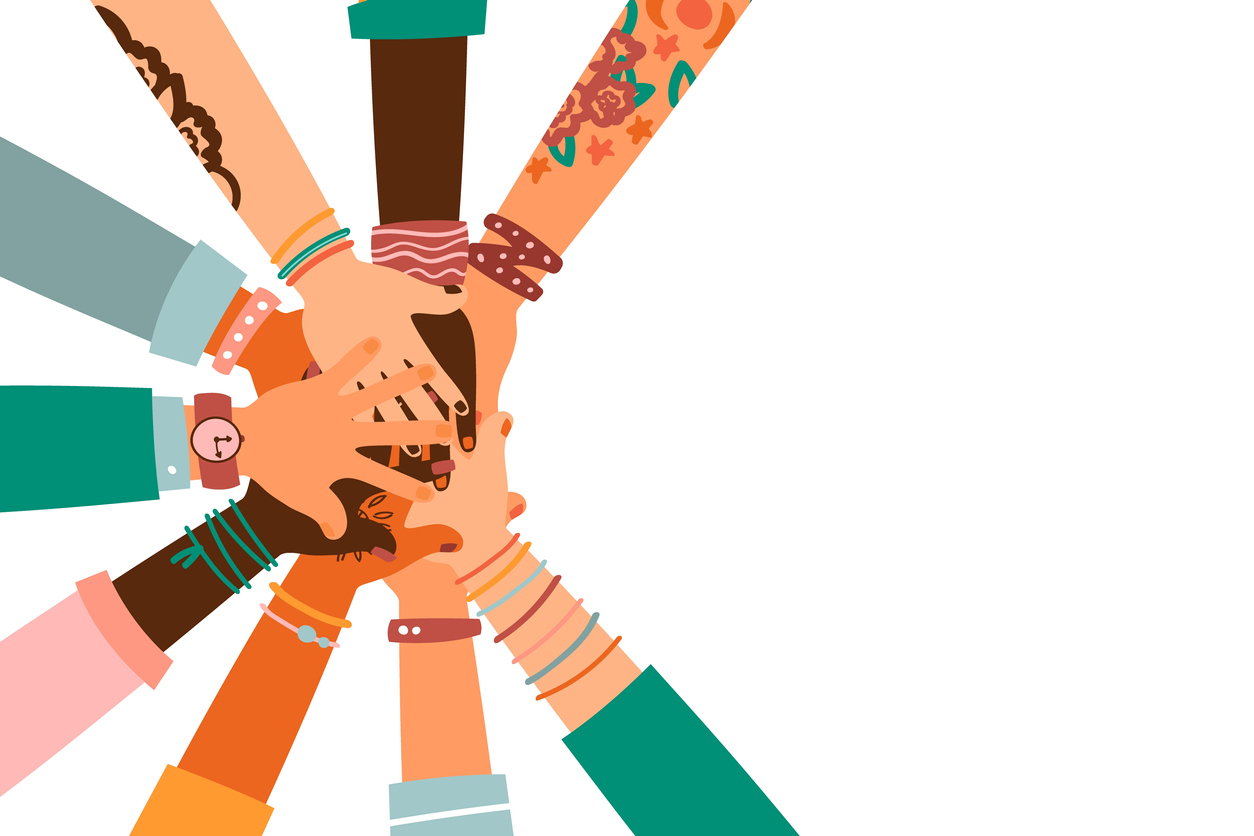
Anyone can be subjected to abuse, discrimination, and harm. Yet survivors will have different needs depending on their gender, sexuality, race, religion, culture and ethnic background.
In response, safeguarding practitioners and services need to think critically about whether processes and practices are inclusive. This may involve asking and discussing why people with certain characteristics are not engaging in services rather than only describing these groups as ‘hard to reach’.
Similarly, promoting inclusivity in safeguarding could involve using different language, providing additional training to staff or changing the format of support for people subjected to abuse. This may encourage more people to report abuse and access support.
What does Inclusive Practice Look Like?
Below we share some examples of good practice where organisations have highlighted how services have been developed to meet different needs.
Refuge runs a number of refuges specifically for women of African and Caribbean descent, and for women of Asian descent. Refuges offer dedicated support to tackle domestic abuse, forced marriage and language support to name a few. Nine out of ten women in these refuges have said they preferred living in a specialist refuge.
Galop have produced a toolkit for organisations supporting people from LGBT+ communities that have been subjected to domestic abuse. The report provides practical guidance for organisations and explains the barriers that people from LGBT+ may encounter when reporting and accessing support for domestic abuse. For instance, the toolkit highlights that people from LGBT+ backgrounds may be wary of reporting domestic abuse to non-specialist services for fear of discriminatory abuse from practitioners. Therefore, specialist support services could encourage people from LGBT+ communities to report abuse and access support.
Respect have set up a dedicated advice line for men subjected to domestic abuse. The advice line has the option for callers to request a telephone interpreter if English is not their first language and the Respect website provides details on how personal data is used to reassure callers.
Women’s Aid have extended refuge provision at 22 of their sites to male survivors of domestic abuse. Additionally, the ‘rail to refuge’ scheme is available to men, women and children fleeing domestic abuse.
What Else Do We Know About Inclusivity in Safeguarding?
The Welsh Government have commissioned research to explore the barriers faced by Lesbian, Gay, Bisexual and Transgender People in Accessing Domestic Abuse, Stalking, Harassment and Sexual Abuse Services. The research recommended that:
- Organisations supporting survivors of abuse need to be transparent about who they are supporting. For instance, do women-only services include everyone identifying as a woman?
- Training materials for staff should include incidents of abuse that involve people from LGBT+ communities, people from ethnically minoritised backgrounds and people with disabilities.
- Services need to be transparent about the level of confidentiality they provide. People from LGBT+ communities and people from ethnically diverse communities could have concerns about reporting domestic abuse due to fears about hate crime, racism and/or forced marriage and honour-based violence. Reassuring people about confidentiality on social media and on organisational websites could encourage more people to report abuse.
How Can You Learn More?
Above we have demonstrated just a few brief examples of what inclusive safeguarding practice could include. You can also learn more by heading to the resources below:
- Read Galop’s ‘Commissioning Inclusivity’ Toolkit.
- Read the guidance produced from the Welsh Government about the barriers faced by LGBT+ communities accessing domestic abuse support.
- Attend our ‘We Matter Too’ film launch to learn more about the issues disabled young people face in accessing domestic abuse support.
- Read Rabina Khan’s article about why women from minoritised groups should not be forgotten in the narratives about domestic abuse.
Contact Us
Everyone has a right to be treated with respect and dignity. Everyone deserves to be safe. To do this effectively it is vital that we consider people’s different needs within safeguarding practice.
Part of this is a continued commitment to sharing resources, learning about people’s diverse needs and adapting our practices in response. If you have developed an initiative in your organisation, let us know and we would love to share this within our resources.
